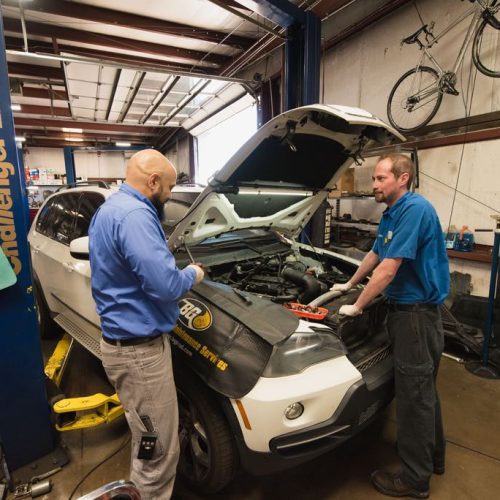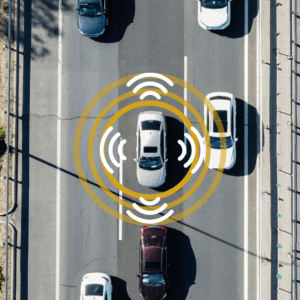Most of us associate the winter cold in Colorado Springs with hard starts, and dead batteries, but the truth is that extreme heat is even worse for your vehicle’s battery than the cold. With that in mind as we come out of one of the hottest Julys on record in Colorado Springs, we thought it might be a good time to talk about batteries.
Common Signs Your Car Battery is Bad
 Typically, a car battery will last about five years, but extreme temperatures can greatly reduce the time a battery lasts. When I worked in Phoenix, we regularly replaced batteries that were only two to three years old due to the heat. The cold temperatures in the winter will cause a weak battery to struggle on cold mornings and will make the weakness of the battery more noticeable to the driver but for those of us in warmer climates the damage is really done by the heat.
Typically, a car battery will last about five years, but extreme temperatures can greatly reduce the time a battery lasts. When I worked in Phoenix, we regularly replaced batteries that were only two to three years old due to the heat. The cold temperatures in the winter will cause a weak battery to struggle on cold mornings and will make the weakness of the battery more noticeable to the driver but for those of us in warmer climates the damage is really done by the heat.
Don’t mistake other electrical issues for a bad battery. Once the vehicle is running the alternator provides all of the power the car needs and the battery is no longer used for power, so in most cases it doesn’t matter if a battery is weak, as long as the vehicle starts the driver will not notice that there is any problem.
The first time you hear that dreaded “click click click” when you try to start your car will be the first indicator that you have a problem with your battery. Dim lights, flickering, or a battery symbol in the dash are not normally indicative of a bad battery and should be diagnosed separately from the battery.
You should be able to listen to the radio with your engine off for 15 minutes without killing the battery, but you don’t want to do it too often. Car batteries are not meant to discharge and recharge like a phone or a laptop. Killing the battery can shorten its lifespan even if recharges and seems to be ok afterwards. The test equipment that we use will simulate a load on the battery and see how it reacts. This will show us the batteries state of health and give us an idea of how much longer it will last. Our experts at Honest Accurate Auto Services may recommend replacing a battery that you have not noticed any problems with based on our load testing and the report from the tester.
Choosing A New Battery: What to look for
There are a lot of different batteries out there and most vehicles have more than one option. Make sure the battery you install is the correct group number or physical size, and also make sure it meets the cranking amperage requirements set by the vehicle manufacturer. The cranking amperage, cold cranking amperage, and reserve capacity are on the battery label and will vary depending on the quality of the battery.
Expect to pay upwards of $150 for a quality battery with a good warranty. There are always cheaper options available but there is a difference between the $89 batteries and the $200 batteries and you will most likely find that out at the worst possible time!
Be aware of what the battery warranty covers, a pro-rated warranty will often pay very little of your replacement cost if the battery is older that two or three years. Full replacement warranties may cost a bit more upfront but are far more valuable in the event of a battery failure.
Battery testing should be a part of your regular maintenance and you can expect to replace the battery every five years or so even if it doesn’t fail on you. Don’t be afraid to replace it before it fails and leaves you stuck somewhere!
If you’re not sure about your battery or charging system condition have your shop run a test. It’s a simple job and can give you a heads up about a failure before it becomes an emergency.



